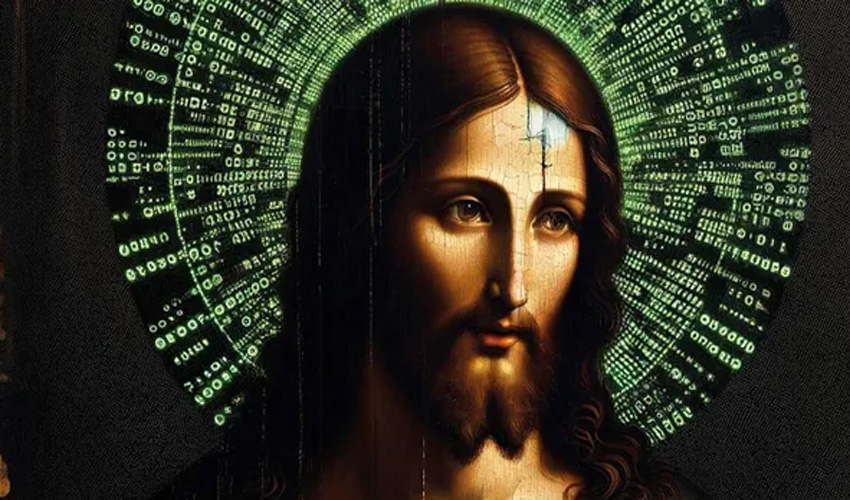A church in Switzerland has introduced an innovative way to engage with the divine by bringing an artificial intelligence version of Jesus Christ into its confessional.
As part of an art project titled Deus in Machina ("God in a Machine"), visitors to St. Peter’s Chapel can now experience a spiritual conversation with a simulated version of Jesus, based on the teachings of the New Testament.
The project, which merges technology with spirituality, has been developed by the church in collaboration with the Immersive Realities Research Lab at the Lucerne University of Applied Sciences and Arts. The AI model was trained using the biblical scriptures, allowing it to simulate the persona and teachings of the 1st-century Galilean.
Once inside the confessional, visitors are greeted by a Swiss-looking image of Jesus displayed on a screen. The AI listens to their questions or concerns, offering guidance inspired by the New Testament’s depiction of Christ. The creators of the project assert that the responses have aligned with the church's theological understanding of Jesus.
Modern twist on faith
"AI fascinates us, but it also raises ethical questions," said Marco Schmid, a theologian at St. Peter's Chapel. He emphasized that the project was intended to explore how modern technology could be used for spiritual reflection. “In all previous tests, the AI’s responses have matched our theological understanding,” he noted.
While the concept has sparked intrigue, reactions from those who have used the AI confessional have been mixed. One parishioner praised the system for its insightful advice, stating how surprised they were by the ease and relevance of the interaction. However, another visitor found the responses to be somewhat generic, suggesting that the machine's interpretations of spiritual guidance might not resonate with everyone.
The project has ignited discussions about the role of AI in religious practices. Some see it as a modern bridge to faith, while others question the authenticity of such interactions.
As the project continues, St. Peter's Chapel plans to refine its AI Jesus, but the ethical implications of using technology in such an intimate and spiritual context remain a point of concern. The church’s initiative has sparked interest in broader discussions on AI's place in religion, with some asking whether technology could replace traditional forms of divine interaction.
In a rapidly evolving technological landscape, similar projects like Social AI, where AI characters simulate entire human experiences, and Friend.com, a platform for supporting AI personalities, are pushing the boundaries of virtual engagement. Yet, for many, the question remains: Can a machine truly replicate the transformative power of personal faith?
As AI continues to challenge traditional beliefs, the church may soon find itself navigating a new frontier in both religious and technological ethics, raising the question: How far can we go in blending faith and artificial intelligence?



























